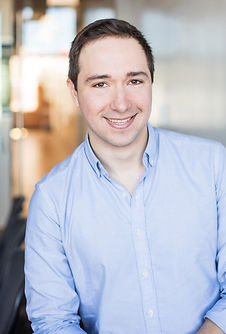Proprio
Proprio is an AI platform that uses wearables to accurately measure and report activities of daily living (ADLs) in a home environment. By reporting how patients and elders spend time at home, Proprio provides valuable insights for physicians and other healthcare providers.
The Proprio Team

Pin-Wei Chen, PhD
Managing Director of Proprio
Pin-Wei is a co-inventor of a wearable and ambient tracking system for monitoring activity and ADLs in patient populations using machine-learning, called Proprio. Together with his co-founder, Pin-Wei developed the first prototype of the ADL wearable monitoring algorithm. Pin-Wei designed the research study to test the PlatformSTL’s MVP with Washington University in St. Louis. Pin-Wei holds a BA in Molecular and Cell Biology; MA in Mind, Brain and Behavior; and a PhD in Rehabilitation and Participation Science. Pin-Wei has 10 years of human subject research experience in the field of Cognitive Psychology, Neuroscience and Rehabilitation Science. His expertise involves human subjects, clinical trials design for human behavior measurements, and data analysis for time series big data. Pin-Wei’s research focus on the upper limb function, and how wearable technologies can help clinicians understand human actions. Pin-Wei also holds valuable entrepreneurial experience, including a leadership history with Sling Health and completion of the I-Corps site program.

Nathan Baune
Operations Director of Proprio
Nathan is a co-inventor of Proprio, a wearable and ambient tracking system for monitoring activity and ADLs in patient populations using machine-learning. At PlatformSTL, Nathan leads product and experimental design in the development of Proprio. With nearly a decade of patient-centered research experience, Nathan is a PhD candidate in the Rehabilitation and Participation Science program at Washington University School of Medicine and holds an educational background in psychology and cognitive neuroscience. Nathan applies behavioral and systems neuroscience approaches to the study of human upper-limb action and the real-world behaviors that it impacts. His research interests include fine motor learning, sensory-motor integration, tool use, and neural plasticity and its effects on function and performance. Nathan has more than 5 years of intensive experience with fMRI, motion capture, and virtual reality development. He applies this experience in developing Proprio, where he is involved in the planning and execution of sensor technologies, patient focused testing, and data analysis. In addition, Nathan completed the I-Corps site program for Proprio.
Proprio Progress
PlatformSTL has developed a prototype of the Proprio system, and tested the prototype with 11 community-dwelling stroke survivors in a study at Washington University in St. Louis. With the study participants’ data set, we were able to create an ML model that can detect 88% accuracy in an independent test based on seven tasks in a sample composed of all subjects. The seven tasks include cutting, vacuuming, sweeping, spreading jam or butter, folding laundry, eating, and brushing teeth.
In 2018, PlatformSTL was awarded a HHS Phase I SBIR grant through the National Institute on Disability, Independent Living, and Rehabilitation Research (NIDILRR). With our SBIR funds, we built our prototype and demonstrated the feasibility of Proprio.
The PlatformSTL Team
PlatformSTL’s software engineering & UX team developed Proprio from concept to prototype.
Contact Us
PlatformSTL partners with inventors, businesses and academic institutions. Our software consulting services drive innovation.Use the form to schedule a meeting.
